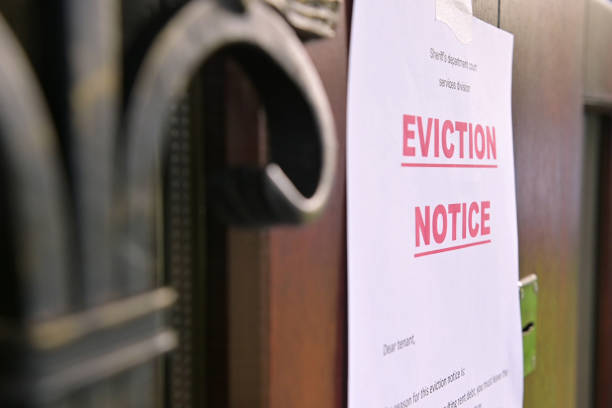Archive for March 2024
Understanding the Consequences of Ending the Eviction Moratorium
Recently, many tenants have been left uncertain as they navigate their housing situations following the expiration date of a moratorium. It’s essential for both tenants and property managers to fully grasp its implications as it comes to an end for tenants’ living arrangements and management decisions. Ending the moratorium on evictions could result in tenants…
Read MoreCommon Eviction Mistakes that Landlords Must Avoid
When the need arises to evict renters, landlords often do it as an absolute last resort – yet must ensure it’s done in an orderly and proper fashion to prevent legal problems, delays, and financial losses that might occur from mistakes made during an eviction proceeding. Here are a few key eviction errors rental landlords…
Read MoreEssential Elements for Tenant Move-in Procedures
Moving into a rental home can be exciting, but tenants must follow certain procedures to ensure an easy transition and ensure an excellent renting experience. By following these steps they’ll protect their interests as they build positive relationships with landlords. Here are a few essential procedures they should keep in mind: Before moving in, thoroughly…
Read MoreUnderstanding the Eviction Ban: How Landlords Tackle Legal Challenges
Many jurisdictions are taking temporary measures to safeguard tenants against losing their homes, such as bans on eviction. While well-meaning, these bans present landlords with challenges who rely on rental income for expenses and maintenance of their properties. This article will analyze these bans along with their impact and legal challenges related to protecting tenants’…
Read MoreOut-of-Town Landlords: Essential Tips to Achieve Success
Out-of-town landlords face many unique challenges when managing rental properties remotely and satisfying tenants, from overseeing rental units remotely to assuring tenant satisfaction. Out-of-town property managers can still effectively oversee their rental properties with the appropriate strategies and approaches in place, including some tips that out-of-town landlords should keep in mind when managing from afar.…
Read MorePros and Cons of Installing Wi-Fi Network Infrastructure for a Rental Property
Wi-Fi connectivity has quickly become a staple feature in rental properties today, offering many advantages but also some potential drawbacks that landlords must carefully weigh before installing it at rental properties. Let’s discuss both sides of installing WiFi at rental properties. Benefits Increase Marketability Letting a property with Wi-Fi included can make it more appealing…
Read MoreTips to Keep Appliances Working Smoothly in Your Rental Home
Large appliances such as dishwashers, refrigerators, washers, and dryers are essential elements in a rental property’s infrastructure, providing tenants with convenience and functionality. Unfortunately, such expensive components can become very costly to replace or repair over time without proper care and upkeep; take note of these tips to extend their longevity while cutting unnecessary expenses.…
Read MoreGuide for Utilization and Implementation in Rental Lease Amendments
Rental lease addenda are documents used to add or alter terms in a rental agreement, providing landlords and tenants a way to address specific circumstances or changes within their agreement. It is vital that both parties fully comprehend why lease addendums exist as tools for addressing particular scenarios or changes within them. It is therefore…
Read MoreThe Attributes and Methods of a Great Property Manager
Being an effective property manager takes an arsenal of skills, knowledge, and practices geared to effective property administration. From residential to commercial properties, cultivating these traits will allow you to shine in this role while providing exceptional services for owners and tenants alike. Strong Communication Skills Property managers require excellent communicators. In particular, property managers…
Read MoreUnderstanding Occupancy Limits and Standards When Renting
Rental occupancy limits and standards provide essential guidelines for property management, establishing maximum numbers of tenancies allowed per rental unit and helping ensure tenant harmony, maintaining property conditions, and assuring safety. Both landlords and tenants need to understand these regulations to effectively navigate the rental market. Occupancy Standards are local ordinances and building codes that…
Read More









